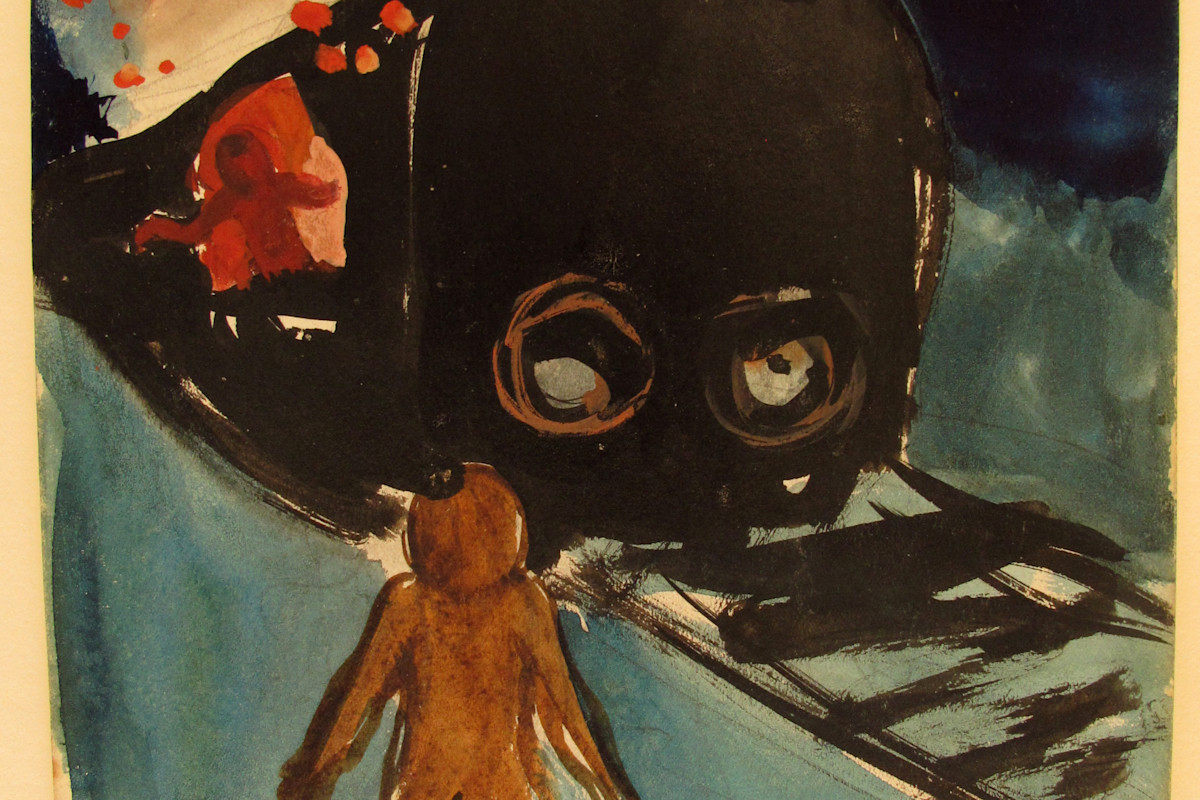Vanuit de Kazerne Dossin in Mechelen werden in de Tweede Wereldoorlog 25.490 Joden en 353 Roma met de trein gedeporteerd, waarvan de overgrote meerderheid naar Auschwitz-Birkenau. De sporen naast de kazerne zijn intussen verdwenen, op het plein voor het huidige museum staat een goederenwagon die ons herinnert aan de laatste transporten uit Mechelen.
EUROPALIA organiseert op deze herdenkingsplaats de conferentie Trains and the Holocaust, in samenwerking met Stichting Auschwitz en Kazerne Dossin. De conferentie is open voor een breed publiek en gaat in op de rol en de beeldvorming van de trein, die van een symbool van de moderniteit evolueerde naar een instrument in een genocide.
Hoe functioneerde de Kazerne Dossin als verzamelkamp en hoe gebeurde de deportatie van al deze onschuldige slachtoffers? Aspecten die onder meer aan bod komen zijn de overval op het XXste konvooi in Boortmeerbeek (de enige deportatietrein ooit gestopt door het verzet), de verantwoordelijkheden van de verschillende overheden, herdenkingspraktijken zoals rond de “Judenrampe” in Auschwitz-Birkenau en de educatieve projecten rond deportatie en treinen vandaag.
De talks en rondetafelgesprekken worden aangevuld met beeldmateriaal, getuigenissen en artistieke interventies. Aanvullend introduceert en toont co-organisator Stichting Auschwitz haar documentaire Gedeporteerd van Mechelen naar Auschwitz. Met
De conferentie zal doorgaan in het Engels.
Ontdek hier het volledige programma
PROGRAMME
9:00: Registration
9:30: Welcome and introduction by moderator Annelies Beck
Session 1: Departure – Intro by moderator
9:50 – 10:10: Deportation from the Dossin barracks 1942-1944 - Laurence Schram
10:10 – 10:30: A lesser - or a greater evil? The National Railway Company of Belgium and deportations during the Second World War - Nico Wouters
10:30 -10:50: Q&A
10:50 – 11:10: coffee break
11:10 – 11:40: Three moments in the deportation history of Belgium and Northern France:
Three key aspects, characteristics and events of the deportation of Jews and Roma from Belgium and Northern France:
● Left Behind: the deportation rate of forced slave labourers and their families -
Dorien Styven
● Save the children (11 September, 1942) - Grégory Célerse
● The attack on the 20th convoy - Koen Aerts
11:40 – 12:00: Q&A
12:00 – 13:00: Lunch break
Session 2: Changing images on trains
13:00 – 13:20: From “passenger car” to “wagon”: the misleading deception of deportation - Johan Puttemans
13:20-13:30: Q&A
13:30 – 13:45: moving to Zachor Room
13:45 – 14:10: Alicja Gescinska - Zachor Room
14:10 – 14:25: Moving back to the Museum
14:25 – 14:50: Q&A
14:50 – 15:10: Coffee break
15:10 - 16:00 Session 3: Roundtable on the representation of trains and stations in Holocaust memory
From a symbol of progress to a genocidal tool - Frédéric Crahay
Tracks and Traces of Deportation
The train of 1000 - Hannes Vanwymelbeke
16:00 – 17:00 The importance of witnesses and the screening of the Auschwitz Foundation's documentary “Déportés de Malines à Auschwitz – Gedeporteerd van Mechelen naar Auschwitz” – Frédéric Crahay
17:00 - 17:15: Closing remarks by Annelies Beck
